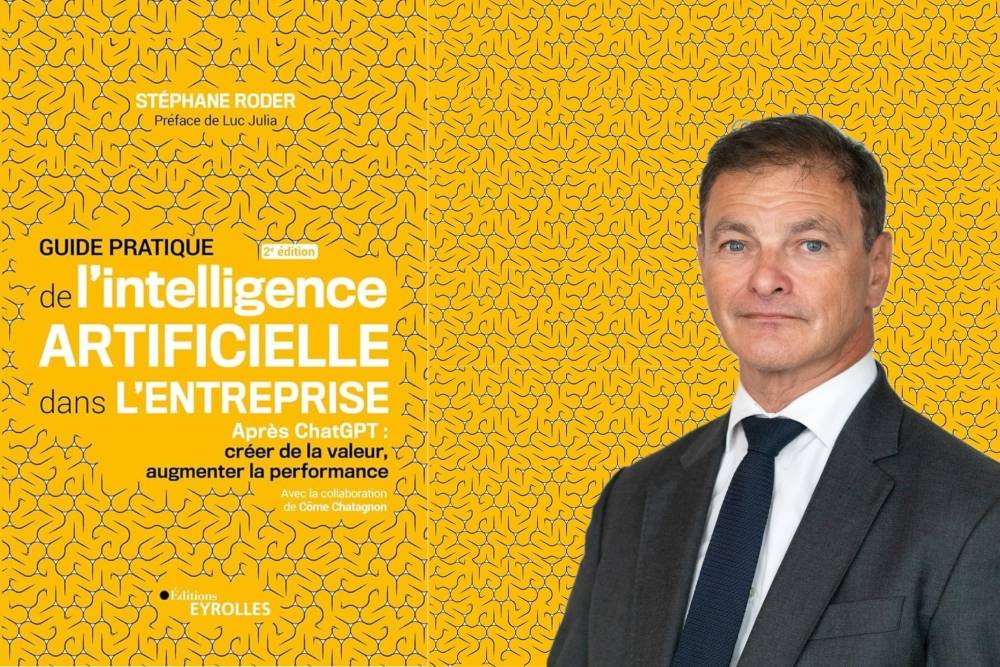All around the world, in Europe, in Asia, investments by the GAFAM (Google, Apple, Facebook, Amazon, Microsoft) in Artificial Intelligence are substantial. Recently, for example in France, Microsoft announced an investment of 4 billion euros over several years. How do you view these "massive investments"?
It is both remarkable and concerning to note the disparity between France's investments and the financial capabilities deployed by a digital giant like Microsoft. Indeed, when a company like Microsoft injects 4 billion euros into the French market, it is legitimate to fear the emergence of a dependency on the American giant. The resources deployed by Microsoft to establish itself in France are impressive, and suggest a dominant position in the market.
What will be, in your opinion, the economic impact of AI?
AI is a source of increased operational efficiency for employees, thereby contributing to a structural reduction in labor costs. It is therefore a major economic asset for both a company and a country as a whole. Its introduction will lead to a progressive improvement in the competitiveness of interconnected economic actors or integrators. AI will thus become a strong axis of differentiation in highly competitive markets. Indirectly, AI will contribute to reindustrialization. First, due to its impact on labor costs, but also because it represents an entire sector that we need to establish, ranging from the nuclear power plant for practically infinite and decarbonized energy, to the processors we currently lack, and finally to finished products as we have seen with Mistral.ai or the legal model of Dalloz.
What are examples of successful AI integration in the industry? And what about the failures?
Recently, an article was published indicating that L'Oréal and Pernod Ricard were globally recognized for their AI achievements... We can go into details. There has been no industrial catastrophe; on the contrary, the use and industrial deployment have always been beneficial when adopted by the professions. Failures are normal with a technology derived from innovation. We learn through "test and learn," where there are failures, but without major consequences if we remain methodical.
In "Stratégies," you say that "Regulating AI is dangerous," as if the opposite of bad regulation is the absence of regulation, and not good regulation. What are the assumptions you make regarding geostrategic competition and the intrinsic risks of AI to arrive at this conclusion?
Regulating AI a priori is dangerous for the industry. A regulation that penalizes a company by 7% of its revenue tends to level everything down to avoid the risk of having to pay such a fine. Innovation is quite the opposite; it is about taking risks, pushing boundaries, playing with limits. We already see large groups asking their teams not to endanger them and therefore leveling down de facto. We are fortunate in Europe to live in democracies. The CNIL has existed for over 40 years and regulates our information systems environment perfectly. It can, as well as the average citizen, appeal to the legislator to modify the law and protect us from perverted use.
From a geopolitical perspective, it is an industrial disaster. The Chinese have no regulation other than that of the Chinese Communist Party, so they will be able to afford a lot of things, even going too far as they did with social scoring. There is no doubt they will enter the market with very innovative AI-based products and solutions. Regarding the United States, as usual, they have self-regulated. Biden spoke, saying he had assurances from all American AI actors that they would behave well. And there it was, the American regulation was done. However, the Americans took the opportunity to protect themselves from AI-related cybersecurity risks, a much more constructive vision. These two examples show that a priori regulation on such an important economic asset will permanently undermine European companies and industries by sapping our competitiveness at the root.
In the matter of generative AI, according to an expert report, France will need to invest at least 5 billion per year until 2030 to avoid falling behind. But for you, does generative AI represent a discontinuity, a phase transition, compared to the techniques you previously worked on? Has it transformed your business?
No, generative AI is an evolution, but what changes are the orders of magnitude: more parameters, more training, and therefore better results. An evolution linked to computing power and the evolution of mathematical models. The revolution is in its usage. Overnight, everyone started using AI...
In your opinion, how far should we "integrate AI" in companies? Are all tasks automatable? Can all decisions be delegated to AI?
It is the professions that decide whether or not to delegate to AI. The error rate must be compatible with the profession; otherwise, it doesn't do it because it engages its responsibility. Generally, AI gives a recommendation that the human uses or not. For example, at Pernod Ricard, the recommendation to a salesperson is used 90% of the time. We must go as far as possible because, in front of us, new entrants "AI by Design" will arrive where everything will be based on AI. We must remain competitive.
(*) CEO of AI Builders, an independent consulting firm specializing in the Data AI transformation of companies.
What about Artificial Intelligence?AI is a set of theories and techniques to create machines capable of simulating human intelligence. The fundamental work is based on mathematics but also on so-called cognitive sciences. Other disciplines are solicited by AI: neurobiology, linear algebra, or statistics. Beyond the technical approach of AI, its ethical aspect is at the very heart of its development. Note that the new form of AI, called generative AI, allows generating text, images, or other media in response to prompts. Its most famous development is OpenAI's ChatGPT. The controversy around the voice of actress Scarlett Johansson recreated by her vocal tool "Sky" demonstrates the fascinating and worrying progress of digital voice.
Please post your comments on:
[email protected]
 Politics
Politics














